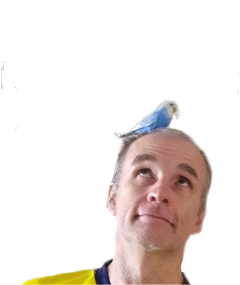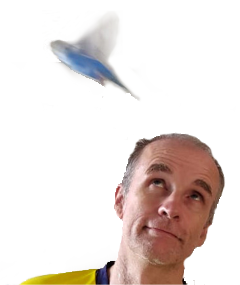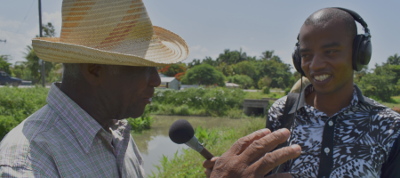A homecoming
Aug. 2, 2015
Xalapa, the capital of Veracruz, would be gloriously picturesque if it were not a gritty, lived-in town, which is what I like best about it. Hardware and office supply stores fill the colonial-style buildings. Buses growl and spew smoke up and down the jumble of cobblestone streets. Front windows hold glimpses into domestic industry: a carpenter's workshop, a luthiers studio, an academic's library. The main plaza is packed with children chasing balloons and pensioners fiercely debating the day's news. Sidewalk cafes harbour local bigwigs hunched over lattees (brewed from beans grown on the nearby hillslopes), making deals among themselves in low voices. Public parks abound, exquisitely designed with snaking paths, exuberant jungle foliage and curious sculptures. There is a world-class orchestra and almost every night, free live music on a street corner somewhere in the city. My children were born here. I took them to the concerts; changed their diapers on the park benches; rode with them on the buses. Xalapa was a comforting place for a new father, and when we moved to Canada five years ago, I left my heart there.
On my return last week, I almost trembled with excitement. My first stop was an old friend who, after hugs and exclamations of joy, I almost dragged out the door to buy our favourite Indio beer, just as we had always done. Striding along the familiar main street snarled with traffic, I was gripped with nostalgia and pulled out my phone to take a photo the of two ageing bon-vivants. Behind us, flashed the lights of an approaching police car.
"Not now," said my friend in alarm. "Wait!"
For the police? I was confused. I remembered Xalapa police as harmless bumpkins; what could be the problem? But when the truck passed us, the bottom dropped out of my stomach. Four faceless figures stood in the back, clad entirely in black. They wore military helmets, flak jackets and ski masks across their faces. Barrels of assault rifles bristled in the air above them. One face turned Terminator-style to observe me as I fumbled with my phone. Cars pulled meekly aside to let the truck pass.
(Here's a radio piece on the same subject: Returning to a changed Mexico)
"That's what they are like now," said my friend, slowly, as if breaking the news of the death of an aunt. "I mean, I've never had any problems with them, but it's better to be safe."
The city I returned to is a city in terror. The police trucks with their robo-cops in the back are everywhere, driving at speed, with their lights permanently flashing, but no one feels safer. As I went from neighbourhood to neighbourhood, friend to friend, trying to rekindle times past like an overenthusiastic border collie, I met with whispers, regrets, silent anger, apologies. "It's the insecurity" they all sighed. Not just crime as I know it, not just muggings or robberies or even drunken murders. Chilling, blood-curdling violence has become routine. Death is the MO of even simple hold-ups (The mother of my wife's friend was killed over a bag of change in her corner store) and break-ins (a local professor was killed in his home by a gang of teenagers a few blocks from my friend's house). The city awakes regularly to news of massacres overnight. (Five headless bodies were found in the port city of Veracruz, two hours from here, on the day I visited.) Darker aggression raises questions over who is involved, questions that will never been answered. (Eight young environmental activists were beaten within an inch of their life celebrating a birthday in a private apartment a month ago; the police never investigated). And people disappear.
I was told over and over again how people disappear.
"They just go out to work one day, and they never come back," says the mother of a girl who used to play big sister to my eldest child. Last year, the daughter of one of her friends disappeared. My friend's apartment is locked -- the family had a secret knock to come in -- and the windows are covered with sheets and newspaper, but she still speaks in a whisper. She tells me about rumours of unmarked vans prowling the bus stops looking for vulnerable young women. She hints at organ trafficking, forced prostitution, as yet unknown motives. "Women. Young girls. Even boys. They just disappear and nobody hears from them again. Where do they go? What happens to them?" She glares at me, demanding an answer. Distant traffic fills the silence. "No one knows. No one... says... anything."
I'm amazed to see the newspaper stands downtown still bursting with publications. There are broadsheets, tabloids, magazines, hand folded pamphlets, dour political encyclicals, colorful picture press, blaring headlines, grotesque photos. There is more variety than I remember, but I don't see as much criticism of the government. There are lots of reports on government beneficence, as well as stories about recent murders. But just the facts. No speculation or investigation.
"You can't talk about the government in public anymore," another friend tells me, also in a hush. "You have to watch what you say everywhere. Even on the telephone." I remembered this friend as a marvellous cook, and I had come for lunch hoping to reminisce about local cuisine. Instead she drops her voice and tells me how three children had turned up dead last week, their stomachs slit and their organs extracted. The newspapers don't report these things, she says. She read it on Facebook. "That's the only way we get information now."
I heard so many claims like this. It didn't do to raise an eyebrow. What did I know, who lived in a place where "truth" still has a concrete meaning. In this place, truth is the plenum of accepted wisdom permeating the city, hovering at head level, darting like fog in a breeze just outside any official channel. You can't contradict it. You can't cross-examine it. You can't substantiate it. You hold on to it, or you will be totally lost.
"Everyone knows it was the government who beat up the students." It's the end of the conversation. After all, who else would it be?
Journalism is not really done in Xalapa anymore. Twelve journalists have been klled during the entire mandate of present governor Javier Duarte. Many journalists claim Duarte is targeting them. He responded last month by saying the only journalists who have anything to fear are those "who don't behave." A day later, a reporter was found dead near the city of Veracruz.
In such an environment, I would never be able to stay out of the fray. Reporter Ruben Espinosa certainly couldn't. He posted a sign in downtown Xalapa that renamed a park in honor of Regina Martinez, a colleague at Proceso magazine, killed by unknown attackers in 2013. After that prank, he began to notice strangers following him around. He later reportedly enraged Duarte with a photo of the governor in Proceso featuring the headline: "Veracruz: a state without law." He became persona non grata at public events. One night two months ago, when walking home, he saw thuggish looking young men waiting outside his apartment. One of them glared at him, and gestured to say "What are you looking at?" It was then that he decided to leave for Mexico City, blaming the governor for driving him out.
I take heart from his escape. I want to love this city still, and there is something life affirming about a journalist who escapes an end that seems so inevitable every time someone tells me the story. Never mind it spells the death of journalism. I have travelled a long way to see the city I consider my spiritual home and I want to find something good. And so does everyone else, by the looks of things. Downtown is humming with activity on my final afternoon. The cafes are full, children kick soccer balls down the sidewalk; a risque clown entertains a crowd seated on steps; from somewhere I can hear live salsa; even the traffic cops chat animatedly with passersby. Every one has told me, as if to cheer me up, that Xalapa is still a decent place if you keep your head down. And I agree.
I cross the street and walk up a cobblestone hill to the National Book Fair being held in a massive, colonial-era school. The hill is steep and requires so much exertion I barely notice an unkempt looking man on a street corner, staring at me. Just for a second his expression seems to say "What are you looking at?" But I'm tired, and beside I never had a problem with anyone in this city before, and pass him without thought. As I walk away, I hear him whistling shrilly to someone in the distance, a series of notes that sounds like a signal. Has he seen a mark in the white guy? I don't stop to wonder. I've soon disappeared into the fair, where dozens of stalls feature more literature than I have seen in a very long time. A jazz band plays in the courtyard, and I sip an excellent local coffee, pleased to be back.
***
Passing the gauntlet of Air Canada's harried school-marmish staff the next day, I return home. Halifax seems so empty and lifeless compared to Xalapa. Suburban streets are wide and without character. Everyone is polite in exactly the same way, and nobody talks. But I'm glad to be with my family, and I share around the books and the coffee beans I've brought back. I don't check the internet until the next day. It is then that I find out reporter Ruben Espinosa, along with four women, one an activist from Xalapa, has been tortured and killed in a Mexico City apartment. The apartment is located a few blocks from where I used to live in Mexico City. I used to love Mexico City, too, but that's a different story.



